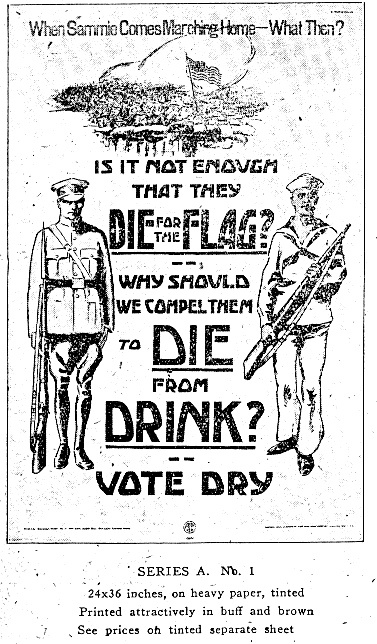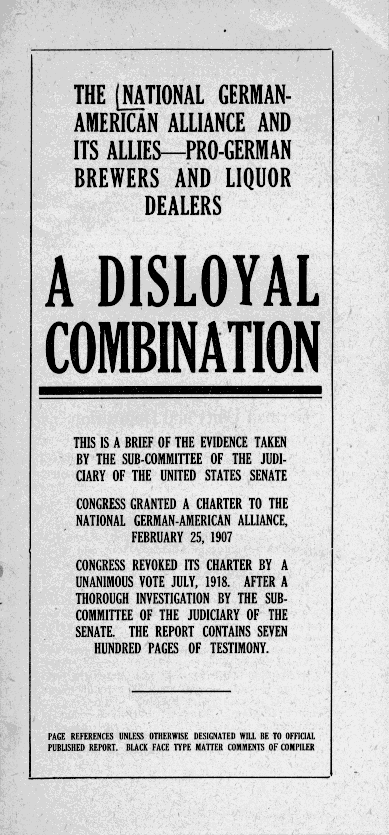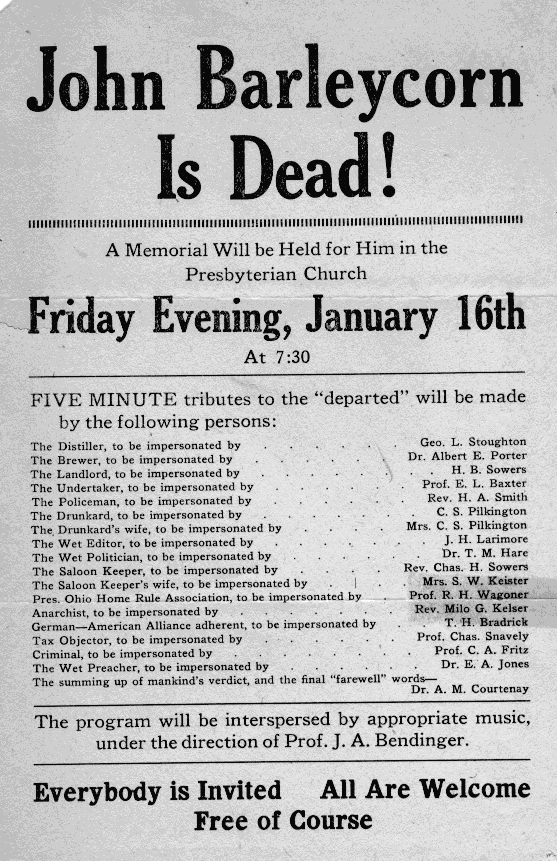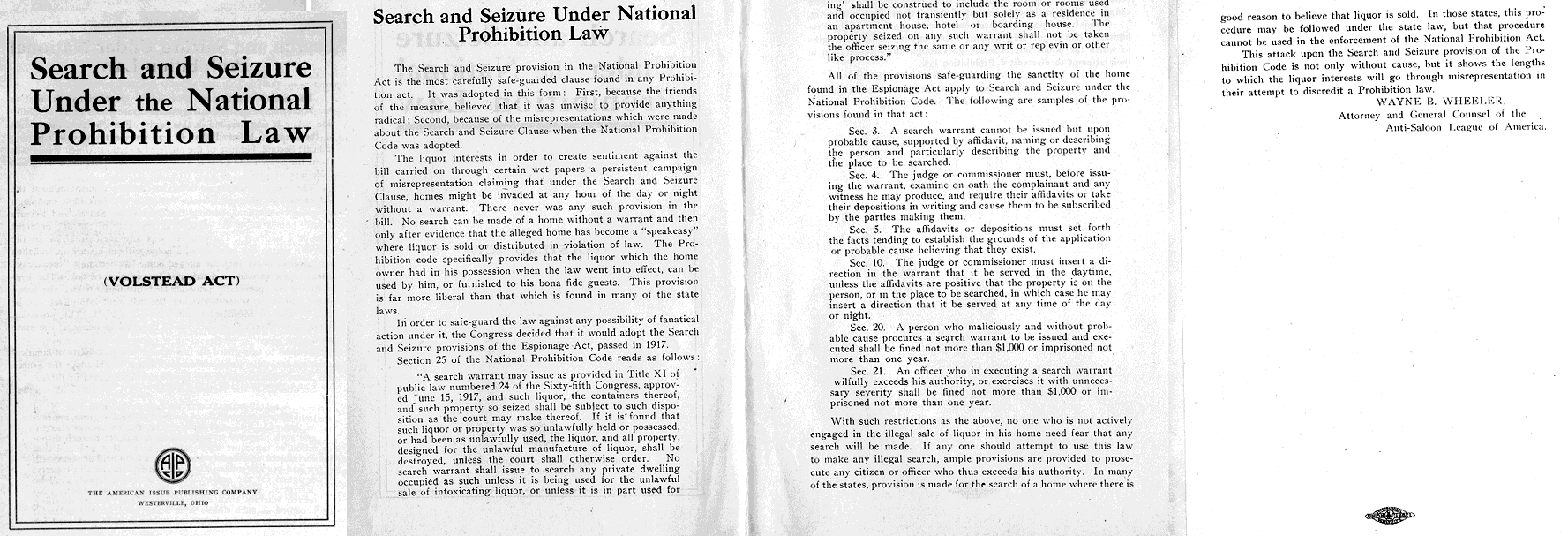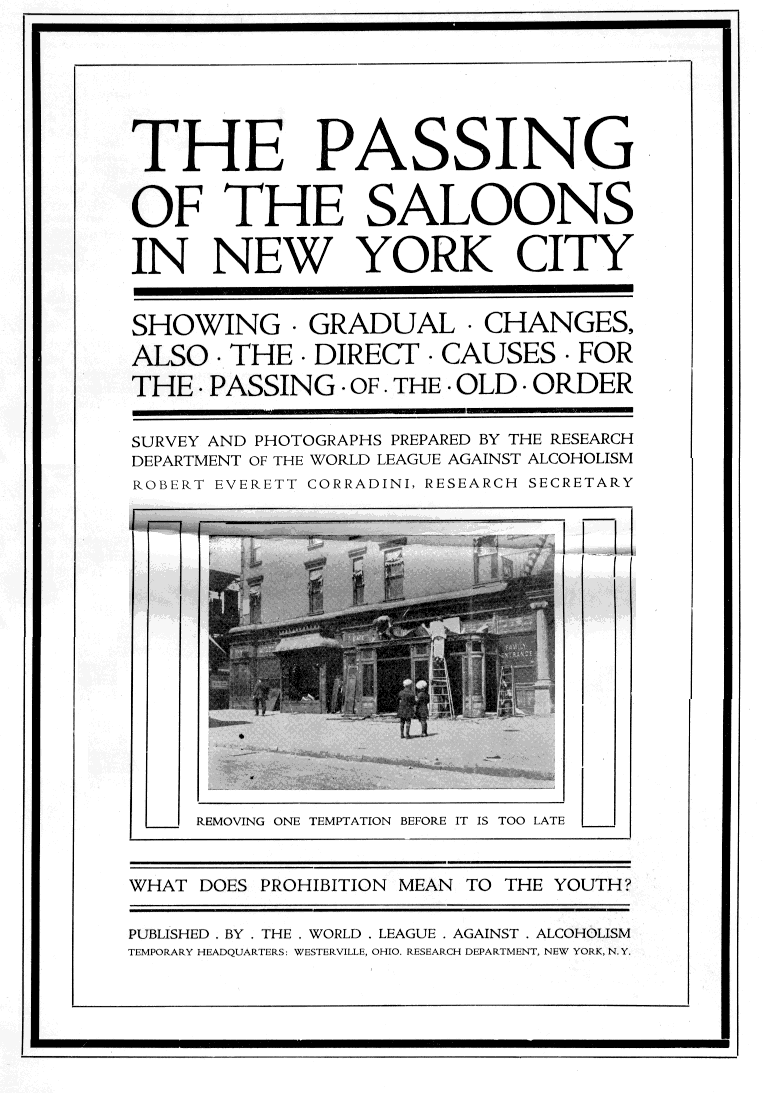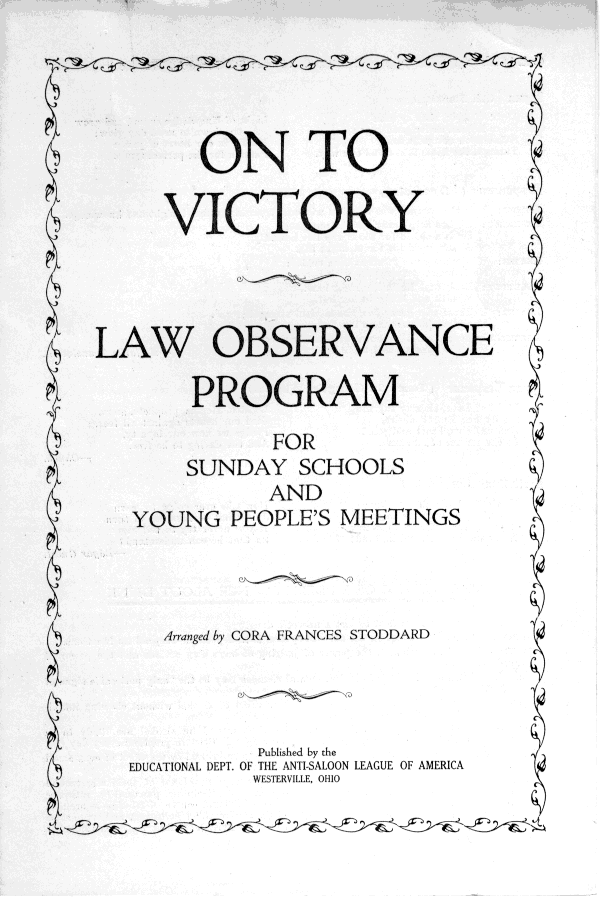Patriotism's Role in the Ratification
The frenzy of feeling against the Germans during World War I and support for American boys in uniform gave the League a tool to use against the saloons. Most of the brewers were of German extraction.
Wayne Wheeler, putting his spin on the war effort, stated that "Kaiserism abroad and booze at home must go." The League, latching its agenda onto Woodrow Wilson's war food control bill, pointed out that resources used for alcohol production were being diverted from the war effort. Using the patriotism generated by World War I as a means to achieve its goal of national prohibition, it re-introduced the 18th amendment to the constitution.
Prohibition Amendment Passes
At this point, the wets devised a strategy that they were mistakenly convinced would stop this amendment. Misjudging the dry sentiment in the country and the grasp the lobbying arm of the League had on state legislatures, the wets proposed a limit on the amount of time the amendment had to be ratified by the states. Seven years was agreed to by the drys and became part of the 18th amendment. The amendment then passed both houses of Congress by the required 2/3 vote. No one realized the rapidity by which the amendment would be ratified by the states.
Thirteen months after the 18th amendment was passed by Congress, Nebraska became the 36th state to ratify it January 16, 1919. The amendment became law January 17, 1920.
With great jubilation the dry forces ushered in this new era in American history called Prohibition. Celebrations were held all over the country commemorating the death of John Barleycorn.
New Law Is Enforced
The enforcement arm of the 18th amendment was the Volstead Act, which placed the authority to enforce the amendment in the lap of the Treasury Department and defined what legally constituted an alcoholic beverage. The strictness of this definition finally dispelled any notions that the brewers had of being able to avoid catastrophe. Their products were banned also.
Now that its dream had come true, the League turned its attention to law enforcement issues and extolling the new climate produced by Prohibition. It promoted law observance days and formed The American Bond, a branch of the Lincoln-Lee Legion which promoted obedience to the law through another pledge program and appeals to patriotism.
A drama in the form of a debate "Can the Law Be Enforced?" sponsored by the League and manned with paid personnel traveled around the country presenting the League's viewpoint on this question.
About the League
Museum Hours
Monday-Saturday: 9am-6pm
Closed on Saturday: 1-2pm
Closed on Sunday

